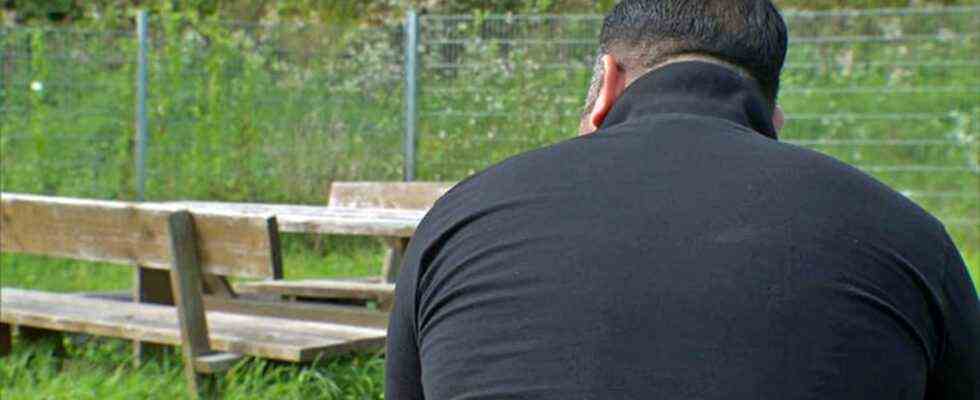Status: 08/25/2021 12:23 p.m.
Some former local workers from Afghanistan have already arrived in Germany. How are you? Three encounters in Baden-Württemberg: about fears for the family and the hope for a secure future.
Muradi has achieved what thousands of people want in Afghanistan: As a former local member of the Bundeswehr, he got a place on the plane a good five weeks ago, before the Taliban seized power. He doesn’t want to show his face in public and doesn’t want to give his last name. Here in Germany, too, he is afraid of being recognized – and thereby endangering his family back home.
Muradi now lives in a small town in southern Germany, is grateful to be able to be here – and yet torn from worrying about his mother and sisters. They had to stay in Afghanistan and are not allowed to travel to Germany until further notice. Only spouses and minor children could follow, he was told. He is not married and has no children: “My sisters and my mother are the only family I have.” He is very worried. “Everyone knows that I worked for the Bundeswehr. If the Taliban find my family, they won’t survive.”
He speaks in a soft, calm voice, always comes to a standstill. “When I think about what could happen to you, I cry. They’re hiding right now. They don’t have enough food, no money and no one to look after them.” The situation is particularly difficult for single women. He is desperate, also because there is so little he can do for his family. For 15 years he helped the Bundeswehr. Now it is up to the German government to help him and his family.
Waiting for approval
In the northeast of Baden-Württemberg, in Kirchberg an der Jagst, Dieter Sudermann from the “Freundeskreis Asyl” and Amir Khoja Sediqi smoke strong rolling tobacco. The two want to take Sediqi’s sister, his brother-in-law and their five children through the controls at the airport in Kabul. The brother-in-law just called, the family is still stuck in the airport. Sediqi and his brother-in-law both worked for the international peacekeeping force ISAF, says Sediqi. He himself fled Afghanistan many years ago. The Taliban had issued a fatwa, a death threat, against the family.
Sediqi tells calmly. The fear cannot be heard, but his words are clear: “If you don’t get out, you are dead, the whole family.” In order to leave the country, the family needs confirmation from a German authority. The soldiers at the airport gave his sister 24 hours to get the okay, says Sediqi: “Otherwise they’ll send her out of the airport again.”
There are still a good four left of the 24 hours. The brother-in-law receives a message from the Foreign Office: “Due to the large number of emails, not all questions can currently be answered individually.” Refugee helper Sudermann is visibly taken with him. “Waiting is the worst. It’s also about love: When does our message reach the loved one? And then the anxious wait for the answer. It’s brutal.”
Chaotic conditions in Kabul
How many former local employees from German agencies are still waiting to leave Afghanistan is difficult to quantify because of the confusing situation, says Lothar Hankel from the “Sponsorship Network Afghan Local Employees”:
The entry list to the airport is the collection list of the Federal Foreign Office. Many can prove that they were local staff, but they do not get into the airport because they are not on the correct list.
Visas are rarely issued because of the lack of infrastructure. The sponsorship network particularly criticizes bureaucratic hurdles that made it difficult for local staff to organize their departure even before the Taliban took over Kabul. In addition, many local employees were initially excluded from applying for a visa due to the requirements of the authorities.
Speechless whether the willingness to help
Two visa applications remained unanswered, the third one worked: a good two weeks ago a family of seven from Afghanistan arrived in the Kaiserstuhl region. To be on the safe side, they too want to remain anonymous because their father worked for the German armed forces for a long time near Mazar-i-Sharif, says Zeyneb Othman. She accompanies the family as a refugee social worker for the German Red Cross.
Othman is a dedicated caregiver. When the family arrived with nothing more than five suitcases, they launched a fundraising appeal. People came and brought clothes, kitchen utensils, shampoo, cutlery, toys for the children and bicycles. “The family was speechless because of the helpfulness here on site,” said Othman. The 16-year-old daughter told her that the constant fear was no longer present since she was here. And that she tries not to be afraid of the future anymore.

